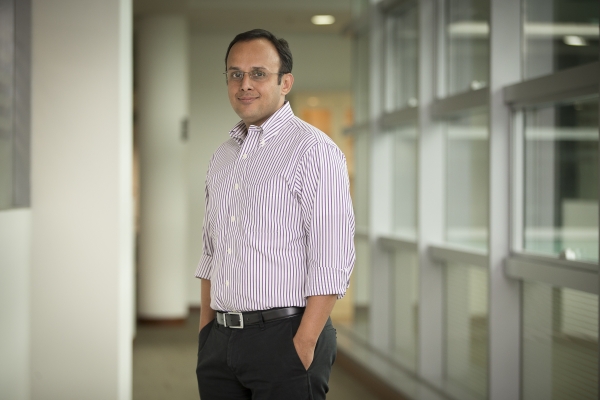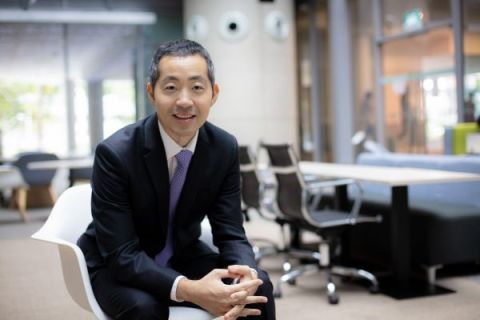
By Alvin Lee
SMU Office of Research & Tech Transfer– When Singapore Management University (SMU), along with the Singapore Economic Development Board (EDB), Enterprise Singapore (ESG) and 9 foundation member companies (DFS, Microsoft, IKEA, Harvey Norman, Decathlon, Visa, Popular Bookstore, DBS Bank, and Tiffany & Co.) launched the SMU Retail Centre of Excellence (RCOE) in October 2017, the aim was to “empower retailers with the know-how through research and insights, and build an ecosystem… to ride the winds of change”. Nearly five years on and approaching the end of the centre’s term, RCOE has produced no less than 20 case studies featuring global brands such as Zara and Gucci, as well as Singaporean companies in the form of Popular Bookstore and IUIGA.
RCOE also ran events ranging from executive programmes to workshops, roundtables, and the annual Asian Retail Leaders Conference (ARLC), which was postponed in 2020 because of COVID-19 and returned in a hybrid format in 2021.
After overcoming numerous unforeseen challenges, have the objectives been met?
“The vision was to create this community which brings together faculty, students, retailers, and retail associated players together to share their experiences locally, but also to expose to them some of the best-in-class practices at a global level,” notes Kapil Tuli, Lee Kong Chian Professor of Marketing at SMU and the Director of RCOE. “[We focused on topics such as] IP protection for retailers, or the state-of-the-art best practices in private labels, emerging insights on omnichannel and retail analytics.
“We met almost all the specific KPIs that were expected of us by our core sponsors, the EDB and ESG, and in most cases we exceeded them. We were very lucky to have the support that we did from our foundation members [who] stepped up to the plate time and again, whether it was flying in people from different parts of the world to attend the executive programmes and conferences in Singapore, or providing speakers for our conferences.”
He adds: “With the benefit of hindsight, we could have done quite a few things differently. But given that two years out of five were lost to COVID, I'm actually very pleased with what the whole team has been able to achieve.”
Lessons learnt
Professor Tuli explained to the Office of Research and Tech Transfer that pandemic-induced border closures made it impossible for RCOE to deliver on key aspects of its programme.
“A lot of our initiatives were based on literally taking people out of their comfort zone,” he says, referring to RCOE’s executive programme that required physical travel to other parts of the world. “We kept on thinking, ‘Okay, the May program will not happen, but maybe it can happen in October or November.’ Before you realise it, 2020 was gone. Similarly, our conference, the whole idea was to have people coming together, flying in people from different parts of the world, showcasing our local retailers and leaders that we literally lost six to eight months to that.”
Other RCOE initiatives, such as the Harvey Norman Case Competition, benefitted inadvertently from global travel restrictions. Originally meant to be a Singapore-only event, the move online opened it to the rest of ASEAN, which Professor Tuli observes was “almost a blessing in disguise”.
While expressing satisfaction at a job well done in trying circumstances, Professor Tuli highlights some lessons he had learnt from running RCOE.
“One of the key things was catering to different stakeholders within SMU,” he shares. “For example, when you involve faculty, you realise that faculty is not just one block. How do we involve a senior faculty member for whom tenure is not an issue anymore? How do we involve tenure track junior faculty? How do we involve faculty in the education and practice tracks? How do we go beyond one area or department to other areas or departments? That was one lesson learned very quickly.”
Professor Tuli also reflected on the need for detailed and careful negotiations with sponsors for centres such as RCOE where “the initial excitement and rush” to sign a deal can cloud judgement. Assumptions of what costs will be covered can prove to be unfounded, sometimes the result of changing personnel within the sponsoring organisation. “The devil is in the details.”
Looking ahead
As the RCOE approaches the end of its five-year term, Professor Tuli looked back at how the centre came to be, and how similar future initiatives could learn from its experience.
“When we think in terms of centres, I think sustainable operations should be considered very, very seriously a priori [i.e., as a matter of principle, not after the fact] about why we are doing this,” he muses. “Do we want to do this for the next 10 years? Someone might support us for five years, but what about beyond that? What is in the business model that allows us to keep it going?
“The university and the centre must have a clear idea. The university should decide, ‘Hey, this is an area where we want to play in very seriously because it can be a key differentiator for us, and we will make this sustainable.’ That has to be very clear. Of course, things change and circumstances change, but that part has to be very clear.”
Back to Research@SMU May 2022 Issue
See More News
Want to see more of SMU Research?
Sign up for Research@SMU e-newslettter to know more about our research and research-related events!
If you would like to remove yourself from all our mailing list, please visit https://eservices.smu.edu.sg/internet/DNC/Default.aspx
